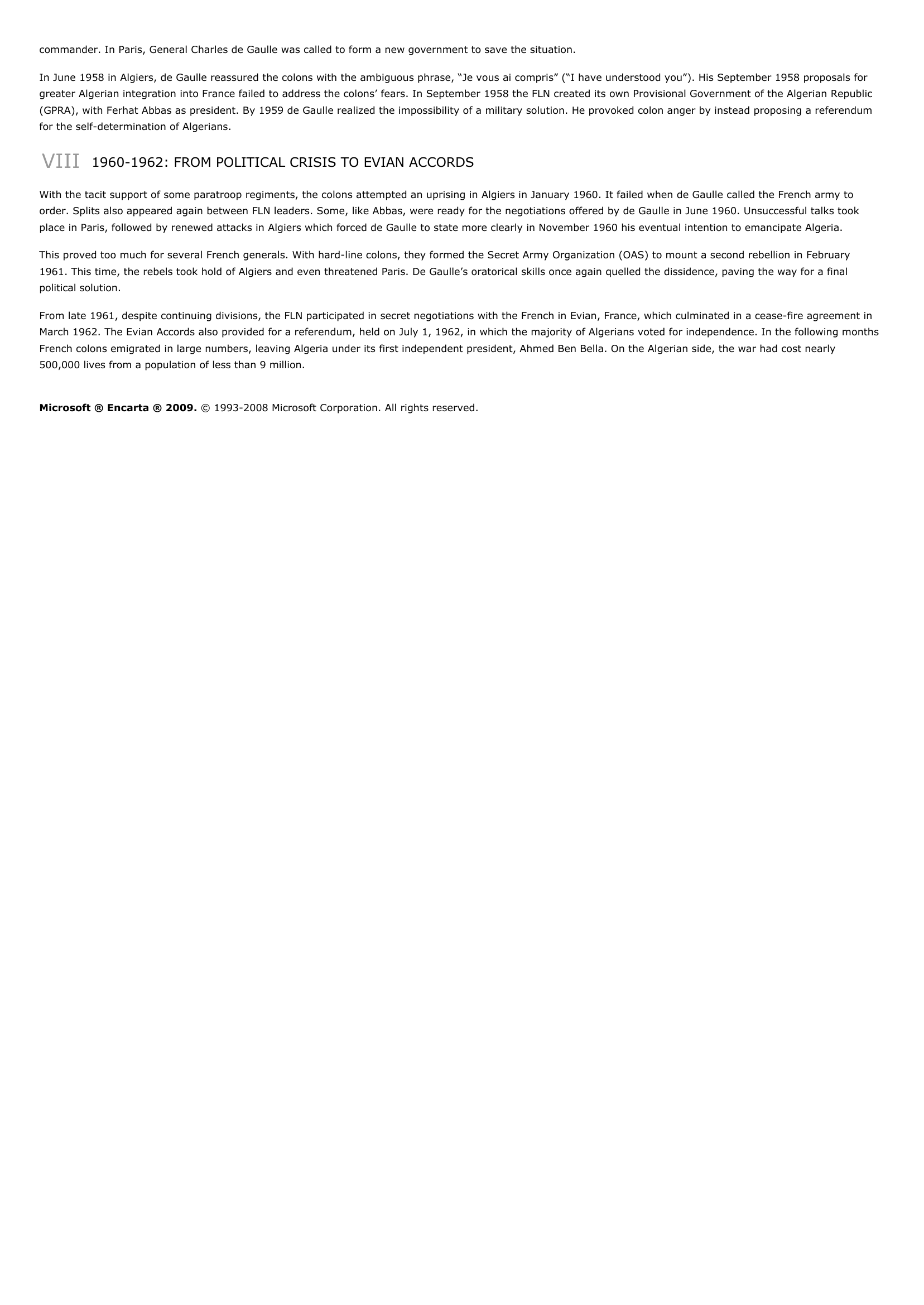Algerian War of Independence.
Publié le 20/08/2013
Extrait du document
«
commander.
In Paris, General Charles de Gaulle was called to form a new government to save the situation.
In June 1958 in Algiers, de Gaulle reassured the colons with the ambiguous phrase, “Je vous ai compris” (“I have understood you”).
His September 1958 proposals forgreater Algerian integration into France failed to address the colons’ fears.
In September 1958 the FLN created its own Provisional Government of the Algerian Republic(GPRA), with Ferhat Abbas as president.
By 1959 de Gaulle realized the impossibility of a military solution.
He provoked colon anger by instead proposing a referendumfor the self-determination of Algerians.
VIII 1960-1962: FROM POLITICAL CRISIS TO EVIAN ACCORDS
With the tacit support of some paratroop regiments, the colons attempted an uprising in Algiers in January 1960.
It failed when de Gaulle called the French army toorder.
Splits also appeared again between FLN leaders.
Some, like Abbas, were ready for the negotiations offered by de Gaulle in June 1960.
Unsuccessful talks tookplace in Paris, followed by renewed attacks in Algiers which forced de Gaulle to state more clearly in November 1960 his eventual intention to emancipate Algeria.
This proved too much for several French generals.
With hard-line colons, they formed the Secret Army Organization (OAS) to mount a second rebellion in February1961.
This time, the rebels took hold of Algiers and even threatened Paris.
De Gaulle’s oratorical skills once again quelled the dissidence, paving the way for a finalpolitical solution.
From late 1961, despite continuing divisions, the FLN participated in secret negotiations with the French in Evian, France, which culminated in a cease-fire agreement inMarch 1962.
The Evian Accords also provided for a referendum, held on July 1, 1962, in which the majority of Algerians voted for independence.
In the following monthsFrench colons emigrated in large numbers, leaving Algeria under its first independent president, Ahmed Ben Bella.
On the Algerian side, the war had cost nearly500,000 lives from a population of less than 9 million.
Microsoft ® Encarta ® 2009. © 1993-2008 Microsoft Corporation.
All rights reserved..
»
↓↓↓ APERÇU DU DOCUMENT ↓↓↓
Liens utiles
- Algerian War of Independence - history.
- Algerian War of Independence.
- TUEUR DE DAIMS (Le) [The Deerslayer, or The First War-Path]. (Résumé et analyse)
- Reasons of the first wolrd war
- War of Worlds de Herbert George Wells

































